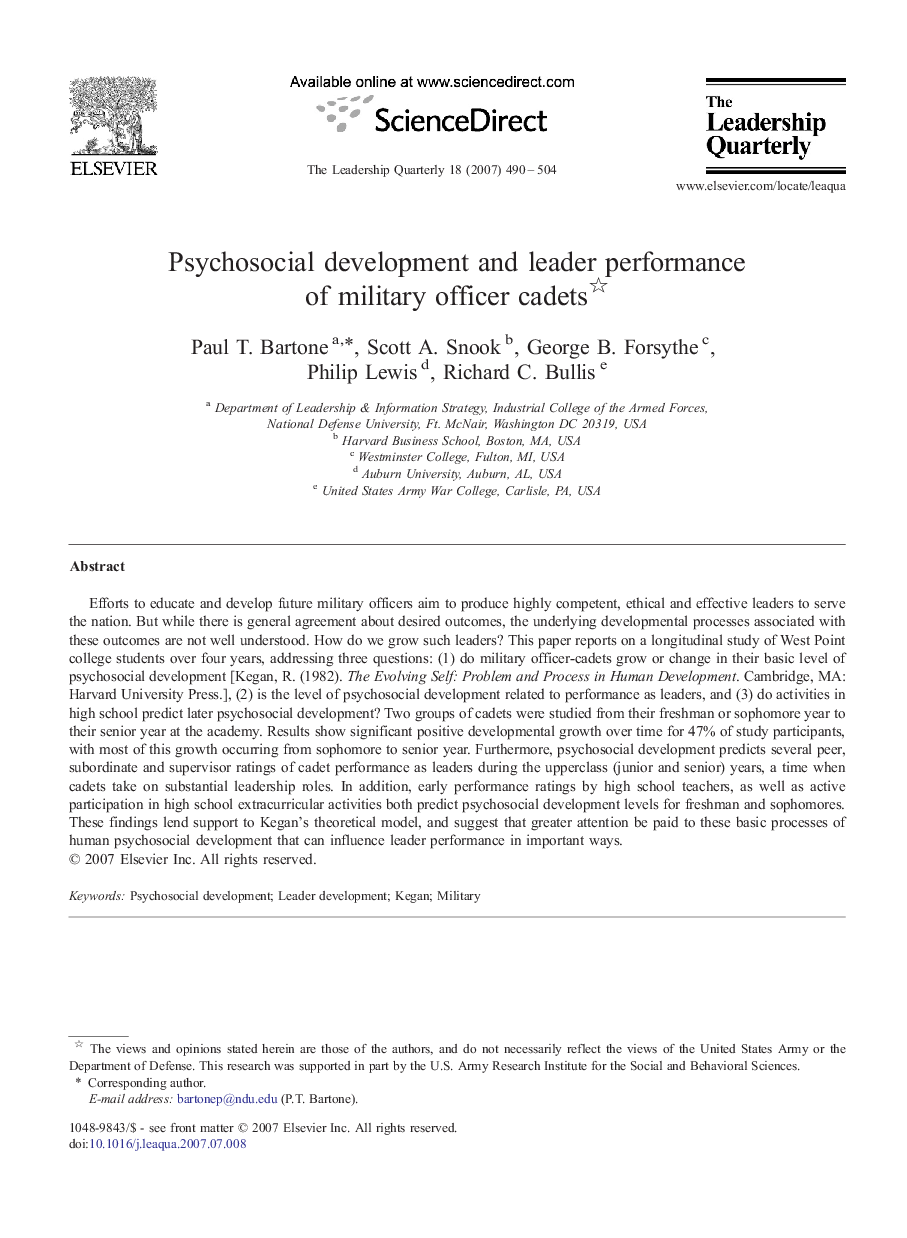| Article ID | Journal | Published Year | Pages | File Type |
|---|---|---|---|---|
| 888284 | The Leadership Quarterly | 2007 | 15 Pages |
Efforts to educate and develop future military officers aim to produce highly competent, ethical and effective leaders to serve the nation. But while there is general agreement about desired outcomes, the underlying developmental processes associated with these outcomes are not well understood. How do we grow such leaders? This paper reports on a longitudinal study of West Point college students over four years, addressing three questions: (1) do military officer-cadets grow or change in their basic level of psychosocial development [Kegan, R. (1982). The Evolving Self: Problem and Process in Human Development. Cambridge, MA: Harvard University Press.], (2) is the level of psychosocial development related to performance as leaders, and (3) do activities in high school predict later psychosocial development? Two groups of cadets were studied from their freshman or sophomore year to their senior year at the academy. Results show significant positive developmental growth over time for 47% of study participants, with most of this growth occurring from sophomore to senior year. Furthermore, psychosocial development predicts several peer, subordinate and supervisor ratings of cadet performance as leaders during the upperclass (junior and senior) years, a time when cadets take on substantial leadership roles. In addition, early performance ratings by high school teachers, as well as active participation in high school extracurricular activities both predict psychosocial development levels for freshman and sophomores. These findings lend support to Kegan's theoretical model, and suggest that greater attention be paid to these basic processes of human psychosocial development that can influence leader performance in important ways.
